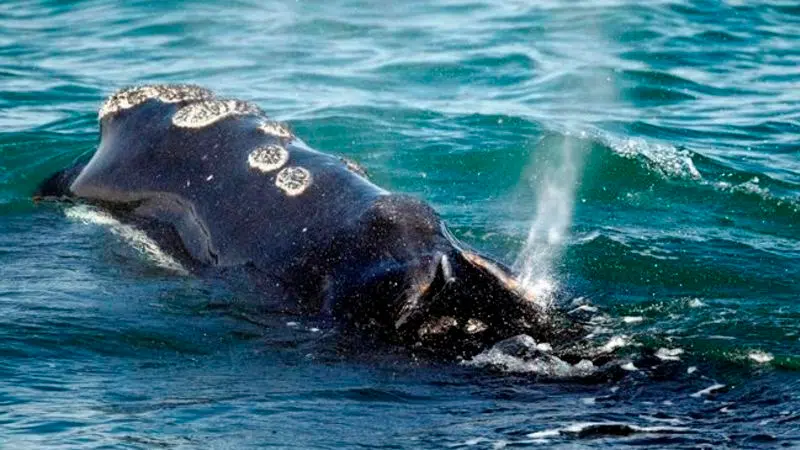
Poor weather foils search efforts for entangled North Atlantic right whales
Search and rescue efforts for three endangered North Atlantic right whales that were found entangled in ropes were foiled on Wednesday because of poor weather conditions.
The Department of Fisheries and Oceans said in a news release that it hopes to resume at-sea and aerial surveillance Thursday morning.
“While poor weather conditions have caused difficulties in our search efforts since these right whales were first reported, DFO and partners remain committed to taking all possible steps to re-locate these whales and initiate disentanglement efforts if/when it is safe to do so,” it said.
Last week, three whales were found entangled in ropes. One of them spotted by the Canadian Coast Guard east of Miscou, N.B. with a rope around its tail and thought to be dragging something heavy.
